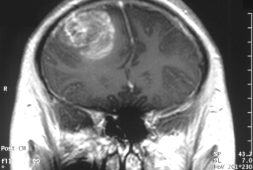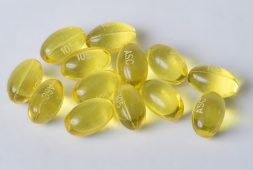10. Contains a substance that may prevent cancer

According to a new study, ginger pills appear to reduce some markers of inflammation in the colon. The study, which was published in Cancer Prevention Research, is an early step toward determining if chemicals present in ginger root help prevent colon cancer. “Many cell culture studies have demonstrated that ginger is an anti-inflammatory,” says study author Suzanna M. Zick, ND, a research assistant professor at the University of Michigan Medical School in Ann Arbor. Other research in mice and rats has found that feeding ginger to animals exposed to a chemical that causes colon cancer may help prevent tumor formation. Zick and her colleagues sought to investigate if their findings might be applied to humans. For the trial, 30 healthy adults were randomly randomized to consume capsules containing either 2 grams of powdered ginger root or a placebo powder every day for four weeks. “It’s around two tablespoons of ground ginger root,” Zick says. “It’s definitely not something the average American would want to do every day, but it’s certainly something that people in India, China, and Japan consume on a regular basis,” she says, noting that such nations have lower incidences of colon cancer. However, Asian diets may be beneficial for other reasons as well. Asian diets, for example, include more veggies and fiber and less red meat. “It all probably contributes,” she says. Participants in the trial were instructed to take the capsules with their meals. They were not allowed to use any other medications, including aspirin or nonsteroidal anti-inflammatory drugs (NSAIDs), either before or during the research because they contain anti-inflammatory properties. The most common adverse effects of ginger were mild stomach distress, heartburn, and gas. Tissue samples were obtained from the colon lining before and after the trial. Researchers looked for eicosanoids, which are molecules that cause inflammation in the gut. According to Zick, “the ginger was able to decrease the amount of inflammatory indicators in the gastrointestinal tissue” when compared to a placebo. “It reduces inflammation, and we know that persistent inflammation in the gut tissue is highly related with the development of precancerous lesions or cancerous polyps.” The National Cancer Institute contributed to the study’s funding. According to experts, the study was well-done and intriguing, but it was still preliminary. “I think it’s a fantastic study, and it opens the door for us to want to do more research,” says David Bernstein, MD, chief of gastroenterology at North Shore University Hospital in Manhasset, N.Y. However, he cautions that, while ginger looks to be quite safe, it is not yet appropriate to use huge amounts of it to prevent colon cancer. Volunteers in the study took eight 250-milligram pills per day. Bernstein says, “I’m not sure that a biochemical response translates into a clinical response.” “You’ll need a larger trial for that. Ginger has been used for a long time for a variety of therapeutic purposes in the Far East, so I tend to believe that something that’s been used for hundreds of thousands of years by a population — there’s definitely a reason. Now we have to prove why.”



